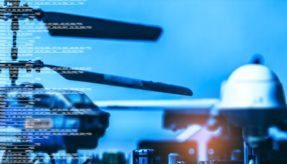
The US Defense Advanced Research Projects Agency (DARPA) has awarded BAE Systems a contract valued at $9.2 million for its Radio Frequency Machine Learning System (RFMLS) program.
As part of the program, the company aims to develop new, data-driven machine learning algorithms that will help to decipher the ever-growing number of RF signals, providing commercial or military users with greater situational understanding of an operating environment.
Modern data-driven machine learning research has enabled revolutionary advances in image and speech recognition and autonomous vehicles. At a time when adversaries have built capabilities to disrupt the RF spectrum, it has become critical to explore how machine learning could be applied to traditional RF signal processing. Through the explosive growth of RF devices and the Internet of Things, the number of connected devices such as phones, sensors, and drones makes it even more important to be able to identify signals intended to hack, spoof, or disrupt RF spectrum usage.
Under this Phase 1 contract, BAE Systems’ scientists intend to create machine learning algorithms, using cognitive approaches, that will use feature learning techniques to differentiate signals. In addition, researchers aim to create algorithms that can learn to differentiate important versus unimportant signals in real-time scenarios through a deep learning approach.
Dr. John Hogan, Product Line Director of the Sensor Processing and Exploitation product line at BAE Systems, said: “The inability to uniquely identify signals in an environment creates operational risk due to the lack of situational awareness, inability to target threats, and vulnerability of communications to malicious attack.
“Our goal for the RFMLS program is to create algorithms that will enable a whole new level of understanding of the RF spectrum so users can identify and react to any signals that could be putting them in harm’s way.”
Image © BAE Systems
If you would like to join our community and read more articles like this then please click here.
BAE Systems DARPA Radio Frequency Machine Learning System RF signals







